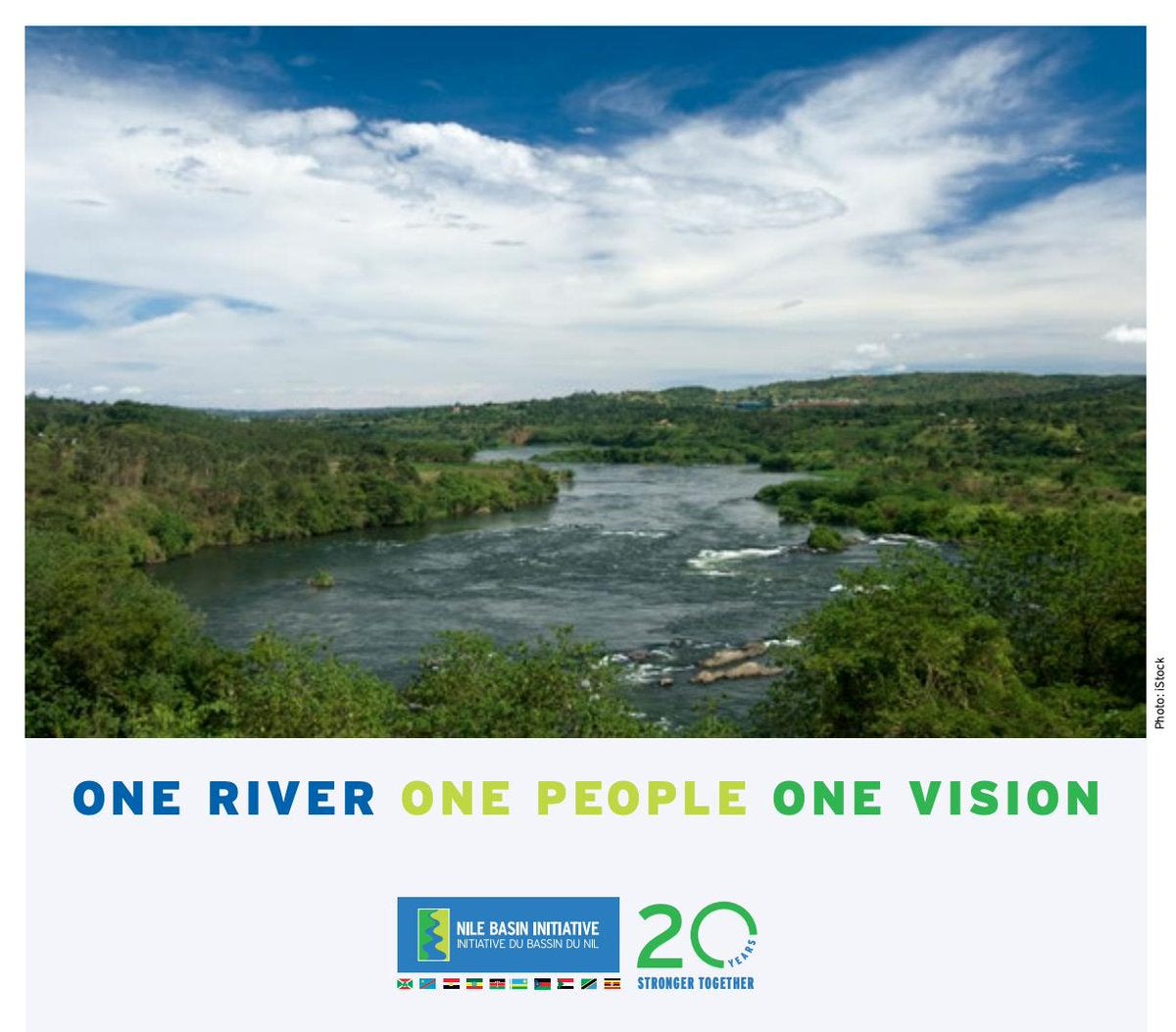Adapted from remarks at NBI 20th Anniversary/Regional Nile Day 2019 Celebrations

Today, Ministers of Water Resources of the Nile riparian countries, officials, and development partners are gathering in Kigali, Rwanda to celebrate the 20th anniversary of the Nile Basin Initiative (NBI), which coincides with the annual Nile Day celebrations for one of the most important rivers of the globe.
This year’s theme is “Stronger Together” – a theme that not only celebrates 20 years of cooperation but also summarizes how we can achieve a better future for all.
Unilateral development often leads to lost opportunities – and countries missing the chance to look for ways to make Basin development beneficial for all riparians.
Alternatively, if we instead choose to work together, a win-win future is possible. How? By sharing information. By forging strong relationships. By investing in joint infrastructure that benefits more than one actor. Through these collective actions, and many more, we can achieve a shared vision. It is therefore individual country leadership and vision that brought the initiative to where it is today: celebrating 20 years of joint work and collective impact.
The World Bank began investing in the countries of this region on the premise of “Stronger Together”: cooperatively and jointly developing shared water resources. This was almost twenty years ago and backed by a committed group of development partners.
Today, we are still supporting Nile countries by investing in information and infrastructure, supporting the technical track of the Nile Basin Initiative, and supporting capacity building on joint management of shared water resources.

Credit: Ministry of Environment of Rwanda
In less than two decades, the Nile countries have transitioned from having little dialogue or collaboration on water resources to an environment with active transboundary, regional norms and processes to share information, and joint prioritization, planning, and implementation of investment projects. The NBI processes have led to a pipeline of nearly $6 billion of investment projects, with nearly $1.5 billion of that total under implementation. For example, projects such as the Rusumo Falls Hydroelectric Project, which is financed by the World Bank and other partners, will generate power for Burundi, Rwanda and Tanzania. NBI helped the countries prepare and is helping them implement the project, proving that Nile waters really are a “gateway of regional cooperation.”
Thanks to NBI’s coordinating role, power interconnections are underway to link the countries who share Lake Victoria. These interconnections allow the Nile countries to develop the least-cost power generation options, be it within or outside their borders, further connecting the Nile riparians. In the Eastern Nile, three countries – Ethiopia, Sudan, and South Sudan – agreed to establish a regional dam safety office.
They also share joint forecasting of flooding during the rainy season, which indirectly benefits 1.7 million people in urban and rural flood-prone communities. Seasonal and weekly flood forecasts were provided in 2018 for the eighth consecutive year. Additionally, between 2018 and 2021, over 50 hydrological monitoring stations in the Nile Basin will be rehabilitated, installed, and commissioned. The stations will provide real-time data on river flows, water levels, water quality, and sediment transport as well as reservoir or lake levels.
Nile Ministers are now routinely approving water resources management and development projects prepared by the NBI, demonstrating cooperative planning of projects of regional significance – and instilling norms that lead to achieving economies of scale, harnessing synergies, and enhancing regional peace and security.
These are powerful examples of why Nile cooperation is so imperative to keep alive if joint development of the region is to be achieved. The Nile Basin Institutions provide a platform on which countries can coordinate the advancement of investments to achieve a secure future for all.
This road has certainly not been straightforward or easy, and it is encouraging to recognize the significant progress that has been made. Seeing how the development of Nile Basin cooperation has evolved -- especially the impressive track record of developments in the Nile region since the first engagement was initiated -- is a great model for collaboration.
Today, Nile countries still face significant challenges. Cooperative use of finite Nile water resources can become a source of new opportunity to increase development benefits and enhance the prosperity of all Nile citizens. The gathering here today of the Nile countries is yet another sign of the commitment of Nile riparians to find and pursue collaborative opportunities. The presence of stakeholders from inside and outside of the Basin demonstrates the recognition of the importance of these Nile issues, and of support for the Nile countries in finding new ways forward.
Going forward we see that climate risk will be an increasing challenge in the basin and the efforts to address it, by the Nile countries and NBI, are critical and can be further strengthened. Furthermore, building on the forecasting work that has been developed for the basin, the use of disruptive technology can be even further advanced. Taking stock of global advances in data availability provides a space that can be harnessed for the benefit of the people in the Nile basin.
We recognize that progress is not linear, as transboundary issues rarely are. Experiences in other shared river basins show that building strong cooperation often takes many decades – with challenges along the way. The World Bank, together with development partners, continue to support the NBI as it provides a neutral forum for dialogue among the parties sharing the Nile waters. We encourage the Nile countries to continue to strive for all-inclusive cooperation, and to use the NBI and other cooperative mechanisms to help address the development challenges of all the riparians.
The majestic Nile has existed and helped people around it to thrive for millennia, and as we gather in Kigali today, I hope the commitment to cooperation can extend far into the future to continue to transform the lives of its people. We congratulate the Nile Basin Initiative on the progress made to date and look forward to supporting it in achieving even more positive results from increased cooperation in the years to come.
Related:
Feature Story: A Look at 20 Years of Cooperation Around the Nile
Timeline: Key Milestones in the 20-Year History of the Nile Basin Initiative (NBI)


Join the Conversation